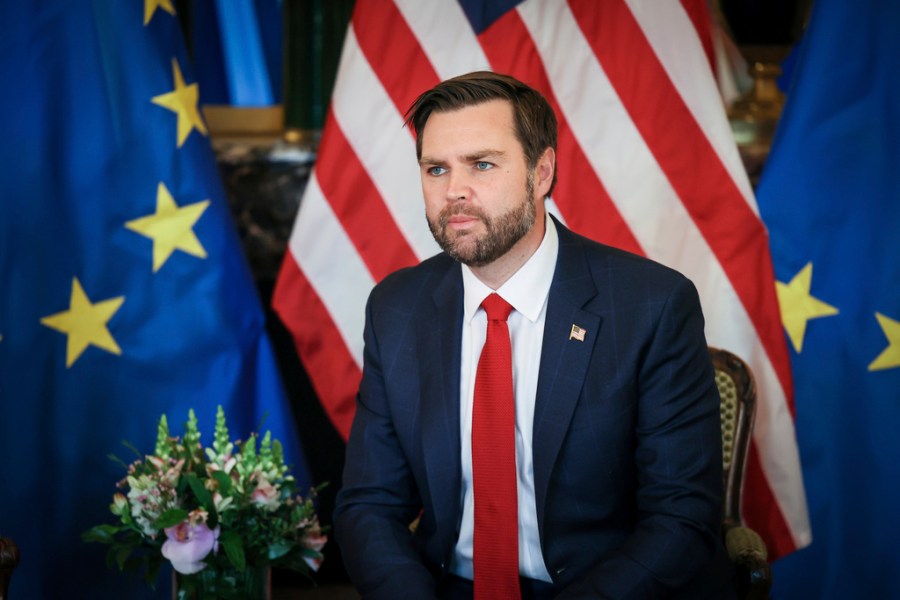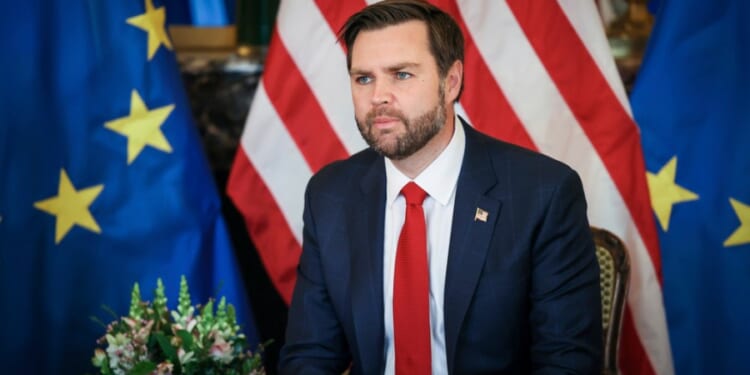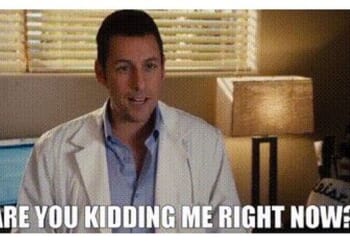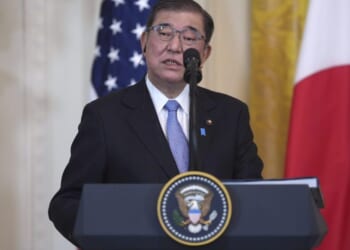
When a leaked Signal chat exposed emoji-filled messages about a U.S.-led military strike on Houthis rebels in Yemen, one line cut through the noise: JD Vance is tired of “bailing Europe out.”
That same European skepticism fueled Vance’s speech last month on technology regulation at the Paris AI Summit, where he condemned efforts to crack down on U.S. technology companies and hinder the American presence abroad. The vice president rightly encouraged our once-strongest allies to see the bright side of the new technological frontier that is rapidly advancing before our eyes, but he also made it clear that we would not be tolerating their gamesmanship.
Europe recently announced that to comply with its Digital Markets Act, American technology titan Apple must give rival hardware makers — including those in Europe — access to their private features or face fines up to 10 percent of global revenue. For perspective, only 7 percent of Apple’s global App Store revenue is even made in the European Union, which could easily be wiped out by a first-time violation penalty.
In two separate letters sent to American policymakers, the European Commission and select members of the European Union parliament made an unconvincing case that the DMA does not unfairly target American companies. The DMA “is not designed to target companies based on nationality,” one letter reads. But Europe is threatening to siphon large shares of revenue from American companies. That’s a trade barrier without the “tariff” moniker.
The reality is that the DMA is designed to bind the conduct of large technology companies — the DMA calls them “gatekeepers” — that are believed to be able to leverage market power to smother smaller competitors. The European Union originally determined only six companies met this criterion: Alphabet (parent of Google), Amazon, Apple, Meta, Microsoft and ByteDance. Five of the six are American. The list was later expanded to also include Booking.com as a gatekeeper, which was then conveniently used by the European policymakers as an example to claim that European technology companies are regulated too.
That is misleading, at best. Booking.com is headquartered in Europe, but it is also a subsidiary of the American parent company Booking Holdings Inc., which is headquartered in Norwalk, Conn. And let’s not forget that European Parliament rapporteur Andreas Schwab admitted in 2021 that “the DMA should unquestionably target only the five biggest U.S. firms.”
Although Europe may claim that it is leveling the playing field, its own technology regulations have kneecapped their startups and small businesses, leaving them no choice but to turn to American and Chinese technology that they then regulate in the name of fairness. In America, we call that freeloading.
The way Europe portrays the relationship, everyone plays by the same rules, those rules are fair, and everyone benefits. In a very narrow sense, Europe has a point: the law applies only to large companies. But Europe lacks the technology muscle to rival American technology leadership. When Euro-style tech regulations target only large technology companies, Europe is spared by its underwhelming performance on the world stage, while American businesses are left to pick up the tab. It’s word games and rhetorical sleight of hand from top to bottom.
The way forward is to re-imagine U.S.-EU technology relations with mutual collaboration, light-touch regulation, and free commerce in mind. That requires the alliance be rebuilt. But right now it seems more likely to decay into irrelevancy or become a source of escalation in the upcoming trade wars.
President Trump is set to announce his own set of reciprocal tariffs, but Congress should push for a different kind of trade reciprocity: the deregulation of American technology at home and abroad. A real strategy can begin with congressional hearings on the matter.
If Europe truly wants a say in how technology firms operate, they should get their own. That will require cultivating a regulatory environment that is friendly to technology innovation. After all, countries only receive as much technology innovation as they allow.
Until Europe has stake in the game, Vice President Vance and other officials in the Trump administration are right to condemn the freeriding Europe continues to enjoy from American technology innovation. They don’t have to thank us, but they should quit regulating us.
Logan Kolas is director of Technology Policy at the American Consumer Institute, a nonprofit education and research organization.











